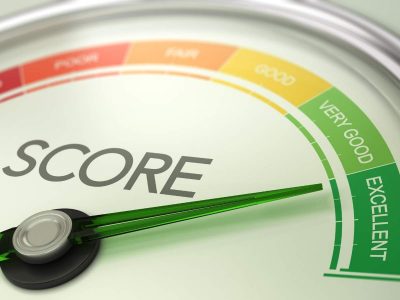In the banking and financial sector, lenders go through thick bunches of credit files every day. The more data they gather and process, the better are their chances of disbursing a loan.
However, there are instances when the borrower may not have any credit history at all. You usually get such cases from first-time borrowers such as students, homemakers, or retirees. Now, since they don’t have any credit history, they are not eligible for loans.
When you don’t have a good credit score, banks won’t be able to disburse the loans, which can lead to a significant gap in the industry.
To counter these problems, various Fintech companies have come together to provide a means for all those first-time borrowers to avail of loans without requiring a credit score. How? By introducing alternative credit scoring systems.
The Increasing Significance of Decoding Credit Scores — Why Pay Attention To Those Numbers?
What are Alternative Credit Scores?
The traditional credit scoring system is rigid and makes all those applicants with no credit history ineligible for borrowing money. Even if a lender did sanction them one, the interest rates would be off the charts.
So, an alternative credit scoring system helps alleviate these problems. However, the question begs, what is an alternative credit score, and how does it help lenders and borrowers alike?
Alternative credit scores work on three fundamental principles: Ability, Stability, and Willingness.
They don’t consider the credit history of the applicant. Instead, they use the applicant’s social and personal information to know their eligibility to avail of loans based on the three factors.
How do New and Alternative Credit Evaluation Systems Work?
Most alternative credit scoring systems work on advanced, complex algorithms that deploy technologies like AI and ML. For example, lenders can ascertain the applicant’s ability to pay their monthly dues by looking at their utility bill payments, bank account statements, their telecom bills, and even their house rents.
Such a system does better than the traditional one because it gives the lenders a much broader scope to get this data.
With the traditional credit scoring system, you can get the data from the past two or three years at most. So, this means that an applicant who has had no trouble paying his or her rent or utility bills during that time may not be paying them at present. Hence, there is a high chance that lenders won’t reject their applications.
However, with the alternative credit scoring system, such a thing would be unlikely as lenders can get real-time data about the three factors, viz, ability, stability, and willingness.
Also Read: Business Loans: When Credit Scores Don’t Matter
How do Alternative Credit Scores Affect Mortgage?
Lenders are always looking to make more money, and traditional credit scoring systems help them in this process.
However, with alternative credit scoring systems, credit scoring companies such as FICO will use alternative data to help process the loans of first-time borrowers or those with no credit history.
Here’s how that works. In the case of traditional credit scoring systems, you need a credit history. However, you also required a credit report that details all your spending habits. The problem with these credit reports is that they consider only some forms of spending as credit.
So, this is what alternative credit scoring systems are out to get. They evaluate your credit score by considering all forms of spending, be it your house to rent or utility bills.
Since they also consider the properties that you own, they are bound to impact the mortgage rates.
What is Alternative Credit Data?
Until now, the data used to formulate traditional credit scoring systems considered only a few aspects of the borrower’s credit, such as his or her credit card repayment history, loan repayment history, mortgage history, and any possible credit inquiries and bankruptcy files.
Alternative credit scoring systems also consider other financial aspects of the borrower, including their house rent and utility payments, bank account statements, and property and asset records, among other things.
Such data help first-time borrowers avail loans and allows lenders to process and approve them quickly.
However, it does not come without drawbacks. One of the most significant demerits of alternative credit scoring systems is privacy. Although the information that borrowers provide is confidential, not all borrowers would be willing to share details like their shopping habits or their employment history with their lenders, as they are concerned about their privacy.
Also Read: 5 Pro Recommendations To Fix A Poor CIBIL Score
Are Credit Bureaus Scoring by Depending on Alternative Data?
When it comes to traditional systems, they don’t provide all the necessary information to disburse loans appropriately. So, credit scoring bureaus are increasingly turning towards alternative credit scoring systems that rely on alternative and valuable data.
Building alternative credit profiles that help in the decision-making process is another primary reason for using alternative data. Today, credit scoring companies look at utility bills or house rentals as alternative data and the borrower’s digital footprints, such as their social media profiles, to better understand their credit.
Alternative credit data has also helped lenders quicken the business loan approval process. Gathering alternative data has opened new avenues to provide loans to even those with no credit history.
Such information has also managed to strengthen traditional credit scoring systems using advanced algorithms.
Final Thoughts
While there are many alternative credit scoring companies out there, it would be better to stick with the ones regulated by the governments. Most alternative credit scoring systems provide you with scores dependent on the data gathered by these companies.
However, when it comes to regulated ones like FICO, you can rest assured that you will get scores based on information gathered by alternative credit scoring systems.
Be sure to maintain a good credit score. Do a credit score check if you are unsure whether you are eligible for loans.

